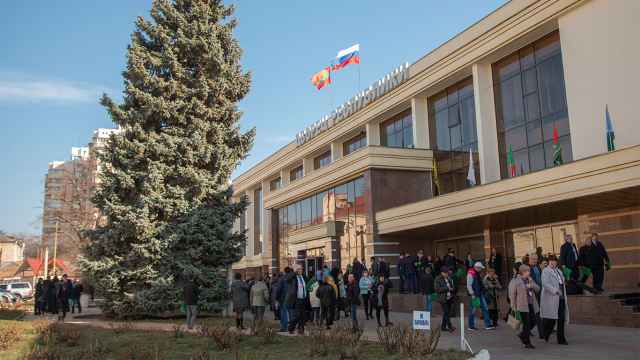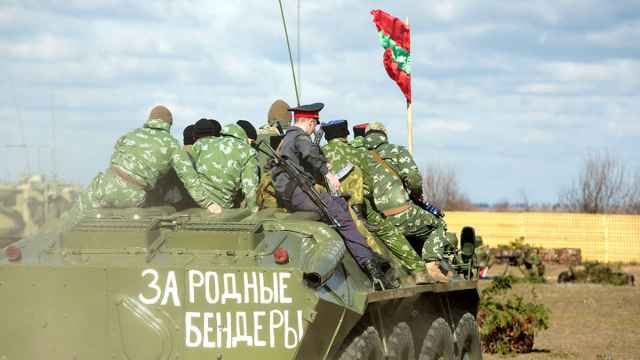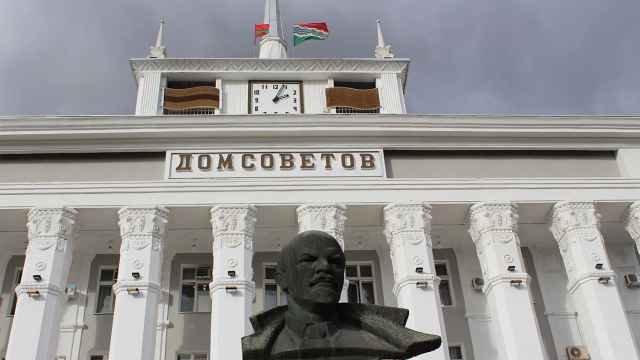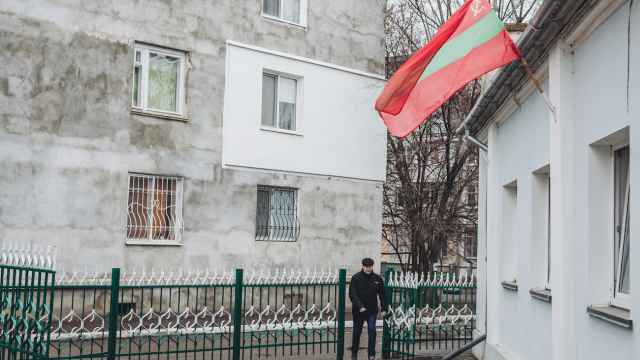The breakaway Moldovan region of Transnistria called on Russia for assistance Friday as it faces an energy crisis after Moscow halted gas shipments last week.
The self-proclaimed republic, which borders Ukraine, has been unable to provide residents with heating or hot water since Jan. 1, when Gazprom cut off gas deliveries to Moldova.
"Over these past days, we have not heard any concrete offers of help from either the European Union, United States or Moldova," Transnistria's Foreign Minister Vitaly Ignatiev said during a parliamentary session, according to local media reports.
"Everyone is counting on there being Russian help with gas supplies, to avoid monstrous humanitarian consequences," he added.
Amid the winter cold, residents have resorted to burning wood or using electric heaters for warmth. This has overwhelmed Transnistria’s Soviet-era energy grid, leading to daily blackouts.
Gazprom halted gas supplies to Moldova on Jan. 1, citing longstanding debts with the Moldovan government in Chisinau. That same day, a critical gas transit agreement between Moscow and Kyiv expired, stopping gas flows through Ukraine.
Moscow blames Moldova and Ukraine for the crisis, accusing Chisinau of inflating the debt issue and condemning Kyiv for its "cynical" decision to end gas transit. However, the EU and Moldovan officials blame the debacle on Moscow, arguing that gas can still be supplied to Transnistria via alternative routes through the Balkans.
The crisis has crippled Transnistria's industrial sector, with most factories shutting down entirely and the few still operating restricted to nighttime hours to avoid further strain on the power grid. Tens of thousands of people have reportedly lost their jobs, and Transnistria's legislature warned Friday that the economy is on the brink of collapse.
Internationally recognized as part of Moldova, Transnistria declared independence following the Soviet Union's collapse and has remained heavily dependent on Moscow's financial and military support. Russia maintains approximately 1,500 troops in the region.
Meanwhile, the rest of Moldova has managed to avoid similar disruptions by securing electricity imports from neighboring Romania.
A Message from The Moscow Times:
Dear readers,
We are facing unprecedented challenges. Russia's Prosecutor General's Office has designated The Moscow Times as an "undesirable" organization, criminalizing our work and putting our staff at risk of prosecution. This follows our earlier unjust labeling as a "foreign agent."
These actions are direct attempts to silence independent journalism in Russia. The authorities claim our work "discredits the decisions of the Russian leadership." We see things differently: we strive to provide accurate, unbiased reporting on Russia.
We, the journalists of The Moscow Times, refuse to be silenced. But to continue our work, we need your help.
Your support, no matter how small, makes a world of difference. If you can, please support us monthly starting from just $2. It's quick to set up, and every contribution makes a significant impact.
By supporting The Moscow Times, you're defending open, independent journalism in the face of repression. Thank you for standing with us.
Remind me later.






